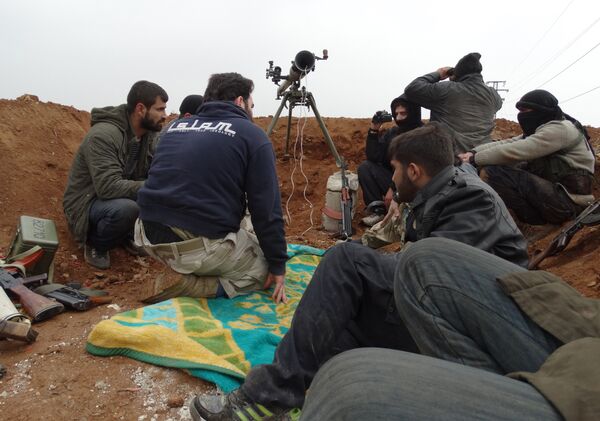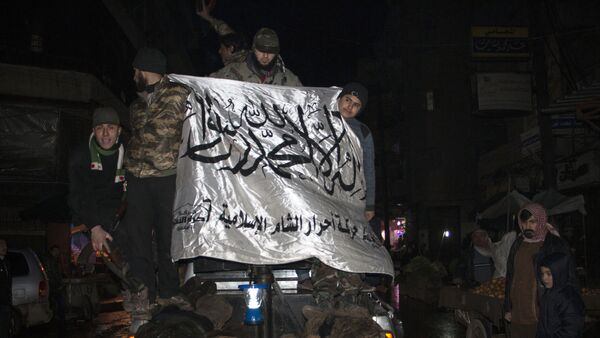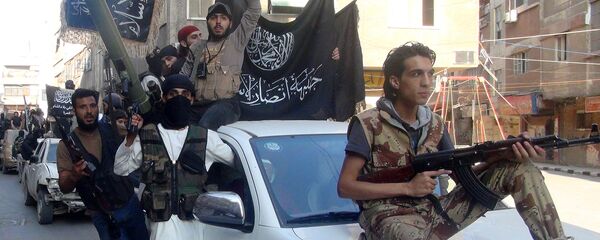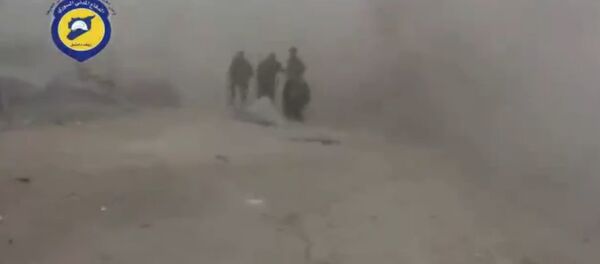The outcome of the foreign ministers' talks in Vienna now suggests that the Syrian government and the opposition should agree within six months on the establishment of a 'national unity' government, as part of the diplomatic solution to the Syrian crisis.
The issue is also expected to top the G20 agenda in Antalya, Turkey.

In preparation for Saturday's meeting in Vienna, three working groups have been working through proposals to decide which opposition groups will be eligible to participate in a transition government and which groups will be considered terrorists and ineligible, according to the Washington Post.
"While there is broad accord over a terrorist list that includes the Islamic State and Jabhat al-Nusra, al-Qaeda’s Syrian affiliate, agreement beyond that has been elusive," the media outlet says.
Saudi Arabia, Turkey and other US allies in the fight against the Islamic State are demanding that the United States expand its list of viable opposition groups to include Islamist organizations such as Ahrar al-Sham, or The Free Men of Syria, amongst others.
"One of the largest and most powerful rebel organizations, Ahrar al-Sham has at times cooperated with Jabhat al-Nusra and has welcomed some of its former members," says the newspaper.
The White House administration, as it has with many other locally supported rebel groups, does not consider them part of the "moderate" opposition eligible to participate in transition plans, continues the Washington Post.
"The Saudis are never going to sign off on Ahrar al-Sham being categorized as terrorists," he added.
Back in October, Middle East Eye news website provided its account on what the rebel group actually is.
"Ahrar plays a lead role alongside al-Qaeda’s Syrian arm, Jabhut al-Nusra, in the wider rebel coalition, Jaish al Fatah (the Army of Conquest)," it stated.
"The Army of Conquest, which includes "moderate" rebels, receives weapons, funding and logistical support from US-led coalition allies, especially Saudi Arabia, Qatar and Turkey."
However, it website added, apparently, one of the largest rebel groups in Syria, "is going through a moderate ideological transformation."
‘At least that’s what one would think from the recent spate of PR, suggesting Washington should ally with the group."
Back in summer, the website says, former US Ambassador to Syria, Robert Ford, urged the Obama administration to open talks with Ahrar al-Sham, or face being "left behind" in the race to "influence" the "fate of Syria".
In September, Syria analyst Sam Heller pointed to interviews where Ahrar representatives disavowed past connections to "Salafi-jihadism," raising the prospect of a more moderate "revisionist school" of jihadism.
In July, The Washington Post gave "an unusual platform to a group that has allied with supporters of Al-Qaeda", said AFP, by posting an article of the group’s head of foreign political relations, Labib Al Nahhas, where he criticized the US strategy in Syria, calling it "abject failure."
"Nowhere is this failure clearer than in the consequence of the misguided way that Syrian revolutionaries are labeled as either "moderate" or "extremist."
Al Nahhas then lamented that the US "has defined the term "moderate" in such a narrow and arbitrary fashion that it excludes the bulk of the mainstream opposition."
"Stuck inside their own bubble, White House policymakers have allocated millions of US taxpayer dollars to support failed CIA efforts to support so-called "moderate" forces in Syria," he added.
But these "moderate" groups have proved to be a disappointment on nearly every count, not least of all in confronting the Islamic State.
He further demanded Washington to admit that the "Islamic State’s extremist ideology can be defeated only through a homegrown Sunni alternative — with the term "moderate" defined not by CIA handlers but by Syrians themselves."





